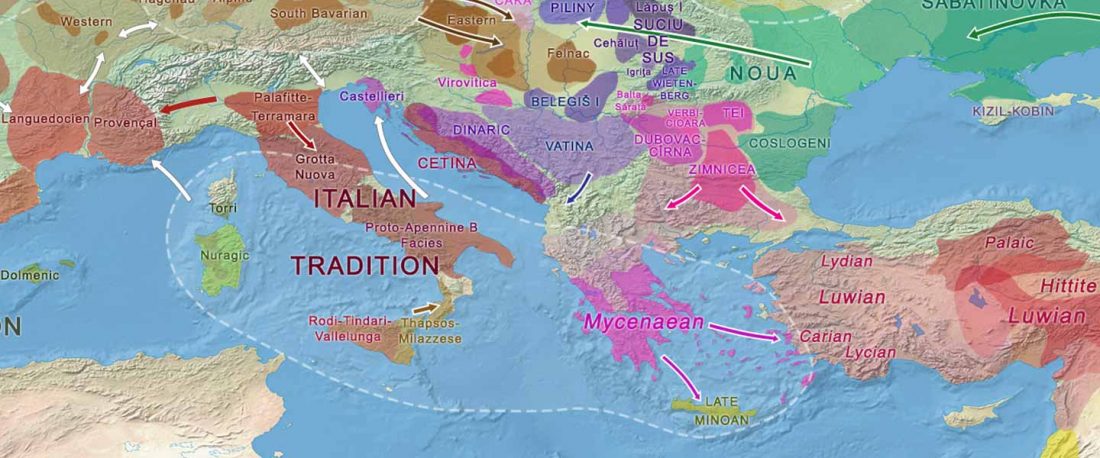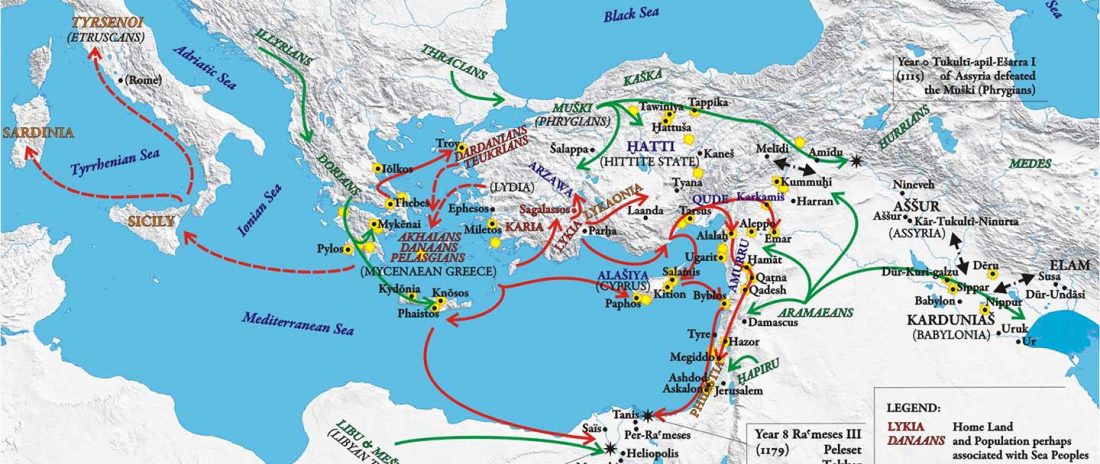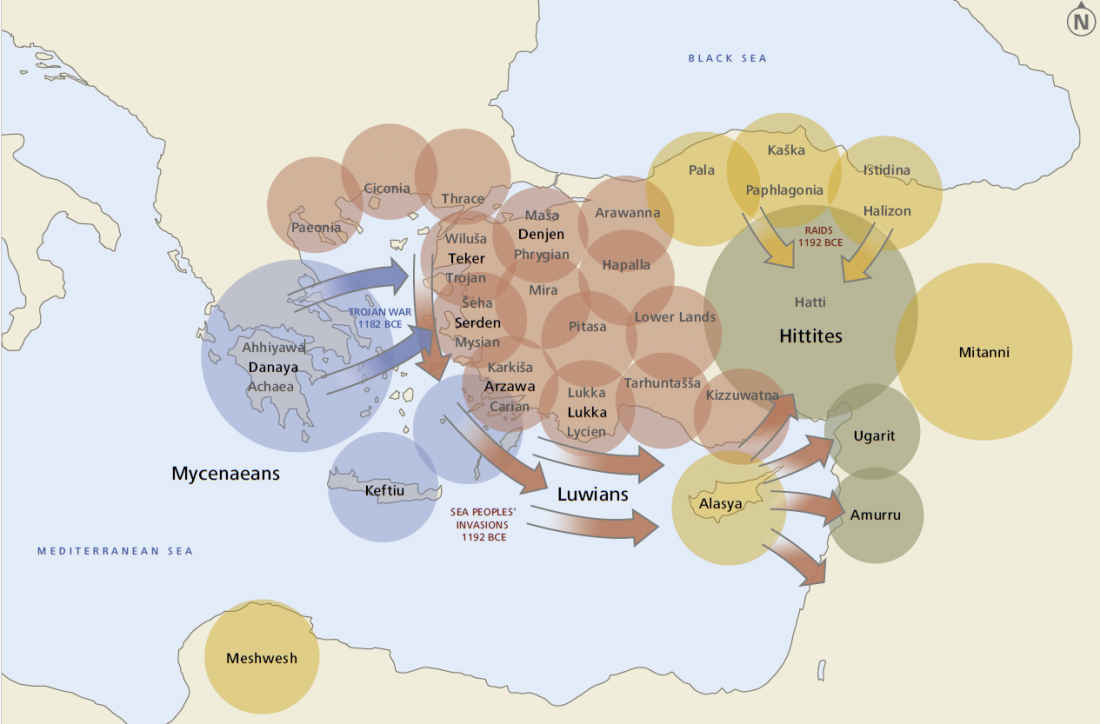There is overwhelming evidence that the oldest hydrotoponymic layer in Italy (and especially Etruria) is of Old European nature, which means that non-Indo-European-speaking (or, at least, non-Old-European-speaking) Etruscans came later to the Apennine Peninsula.
Furthermore, there is direct and indirect linguistic, archaeological, and palaeogenomic data supporting that the intrusive Tursānoi came from the Aegean during the Late Bronze Age, possibly through the Adriatic, and that their languages spread to Etruria and probably also to the eastern Alps.
Hydrotoponymic layer
The following are translated excerpts (emphasis mine) from Lenguas, genes y culturas en la Prehistoria de Europa y … Read the rest “European hydrotoponymy (V): Etruscans and Rhaetians after Italic peoples”


